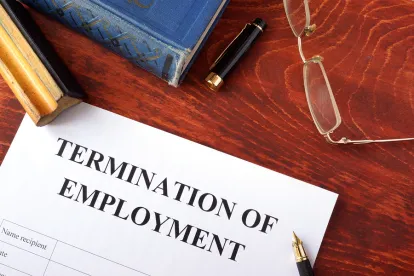The word “unprecedented” has been applied often (and exhaustingly) throughout the COVID-19 pandemic, but when it comes to the impact the pandemic had on the U.S. employment law landscape, the term fits. This was never truer than in the earliest days of the COVID-19 outbreak when companies, facing sudden and abrupt business closures, dramatically reduced their headcounts, ad often without much, if any, advance warning.
Many businesses closing altogether or implementing mass layoffs lacked sufficient time to give notices to employees and government officials under the WARN Act, a federal law requiring larger employers to give at least sixty (60) days’ advance notice of plant closings and mass layoffs. The WARN Act does, however, afford employers several affirmative defenses when they legitimately do not have 60 days’ advance notice themselves of the coming employment losses. One of these defenses – the “natural disaster” exception, 29 U.S.C. § 2102(b)(2)(B) – generally has been applied in cases when a business shutters due to a hurricane, flood, drought, storm, tidal wave, or similar event. Many businesses relied on this exception when they terminated employees suddenly due to COVID-19, reasoning that it too was a natural (as in, not manmade) occurrence with disastrous consequences (infection, hospitalization, and death).
One of the companies to do so was US Well Services, Inc., a hydraulic fracturing (“fracking”) business. In early March 2020, the company faced plummeting oil prices partially due to decreased demand for oil and gas following pandemic-related travel restrictions. As a result, several of US Well’s customers abruptly discontinued the fracking work the company had been performing for them at several Texas sites. On March 18, 2020, US Well distributed notices to hundreds of employees notifying them that they were immediately laid off “due to unforeseeable business circumstances resulting from a lack of available customer work caused by the significant drop in oil prices and the unexpected adverse impact that the Coronavirus has caused.”
The employees filed WARN Act claims in the Southern District of Texas. US Well moved for judgment in its favor, arguing that COVID-19 constitutes a natural disaster under the WARN Act and that the company therefore was exempt from the WARN Act’s 60-day notice requirement. The workers also sought judgment in their favor, arguing that the WARN Act did not include pandemics or viruses in its examples of events constituting natural disasters. The trial court denied both sides’ motions. The workers filed an interlocutory (interim) appeal of the decision with the U.S. Court of Appeals for the Fifth Circuit.
In a unanimous decision issued June 15, 2022, the Fifth Circuit held “that the COVID-19 pandemic is not a natural disaster under the WARN Act.” See Easom v. US Well Servs., Inc., No. 21-20202 (5th Cir. Jun. 15, 2022). This first-of-its-kind U.S. appellate decision distinguishes natural disasters like floods, earthquakes and droughts, which the court described as “hydrological, geological and meteorological events,” from diseases, pandemics, and viruses, finding that if Congress intended for the latter events to be included in the scope of natural disasters, it knew how to do so. “That [Congress] chose not to justifies the inference that those terms were deliberately excluded,” the court wrote.
Although other federal appellate courts conceivably could interpret the term “natural disaster” differently, setting up a split of authority requiring Supreme Court resolution, for now the decision presents a significant obstacle to employers that relied on COVID-19 and its attendant challenges as the sole or primary justification for failing to give sufficient notice of terminations for WARN Act purposes, notice that, absent the gift of prognostication, no employer could have given in the earliest days of the pandemic. That leaves substantial exposure for back pay to the employees terminated fewer than 60 days after learning of their employment loss, unwelcome news to employers still regaining their footing after the pandemic.




 />i
/>i

